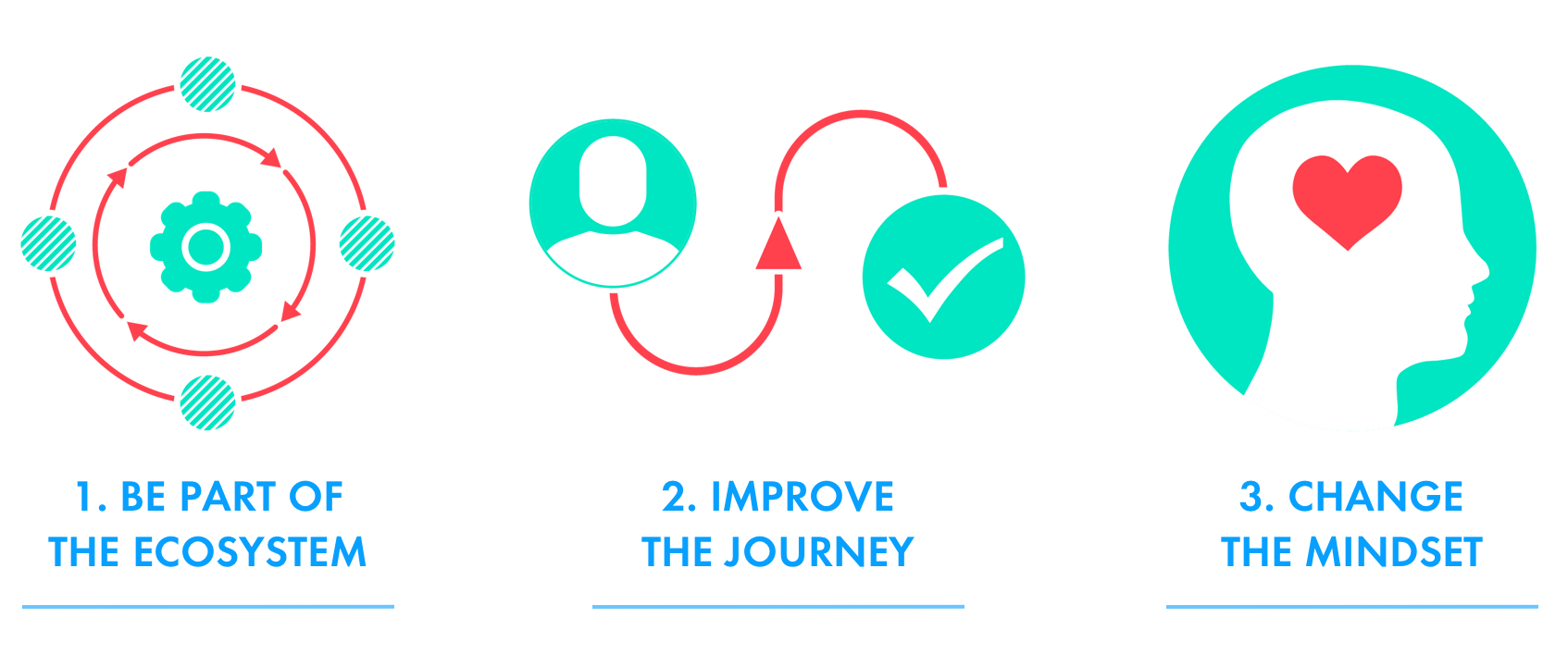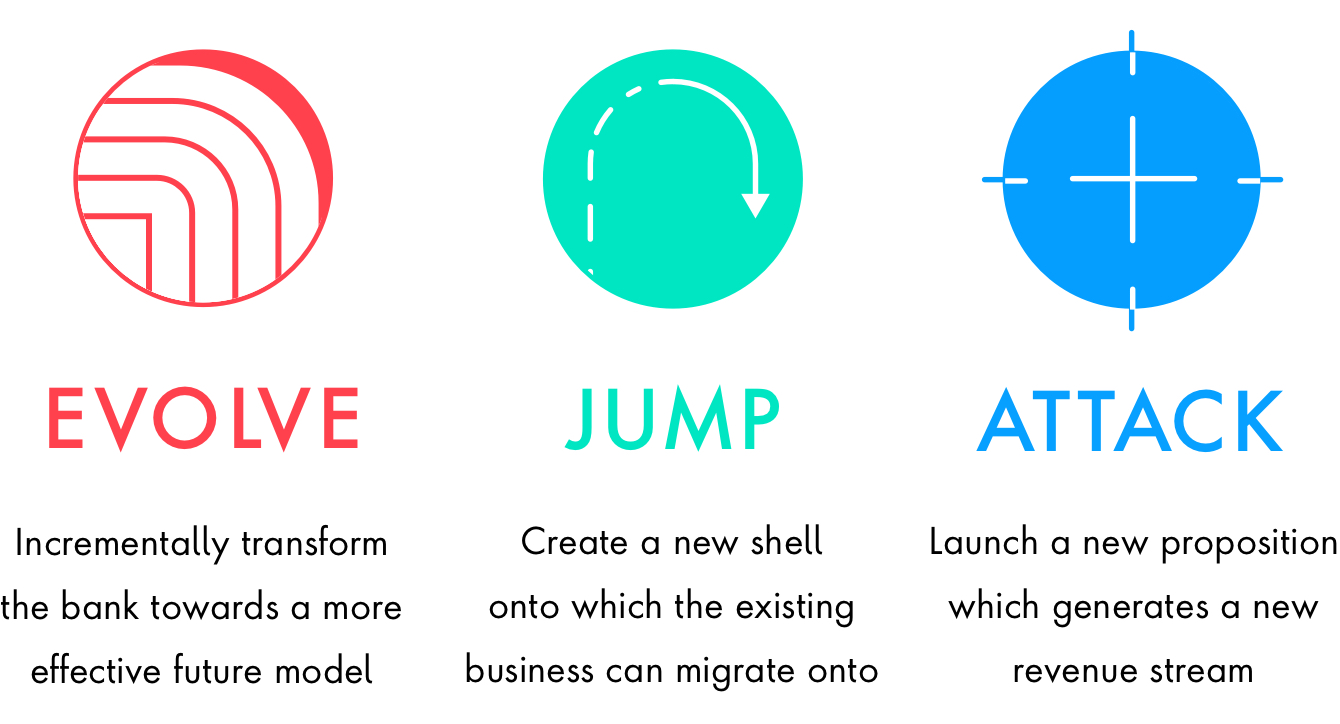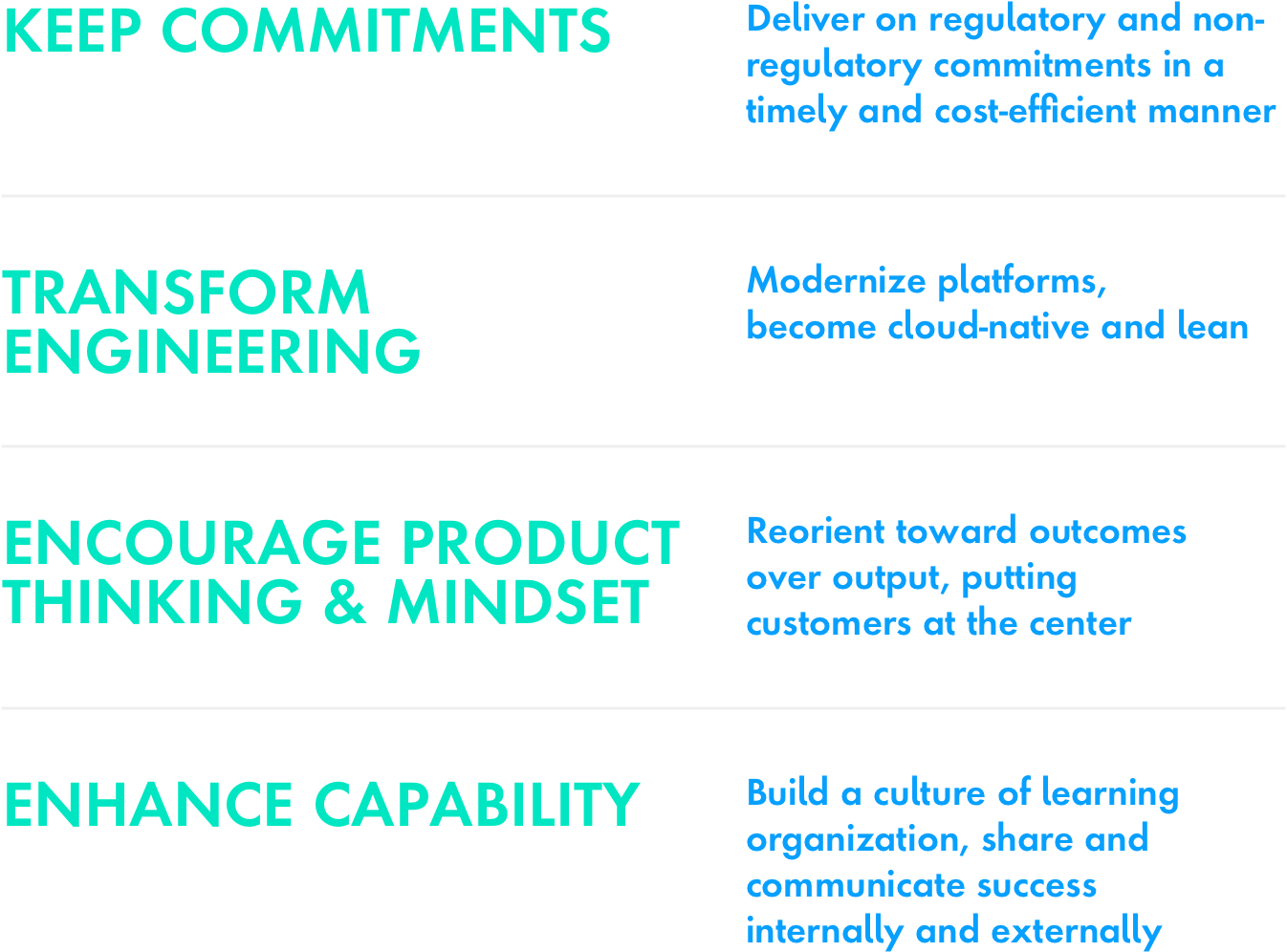3. Change the mindset
Engineering and cloud transformation are about using technology to respond to current challenges and capitalize on future opportunities. By adopting an engineering mindset, UAE banks can get a head start when figuring out their cloud strategy. Many UAE banks are working on their plans to migrate to the cloud. Emirates NBD has implemented a multi-platform cloud strategy as the foundation for its AED 1 billion digital transformation program. First Abu Dhabi Bank (FAB) has recently welcomed AWS Outpost’s launch in the UAE and plans to use it. Mashreq Bank is moving to Azure, as are other banks.
A crucial aspect for all banks is deciding on the steps of their cloud strategy. Do they move to a single cloud or multi cloud platform? Do they move to a software-as-a-service (SaaS) solution or get regulatory approvals for the shift to cloud? Regulatory approvals, especially around data residency and security concerns, are especially important, as is obtaining the investment needed for banks to simplify their architecture and applications to be able to move them to the cloud.
The Publicis Sapient cloud proposition guides each decision point along the way. It can help clients decide on a multi-cloud framework, decide what workload moves to which cloud and ensure that the client has an exit option from a cloud. The proposition also guides regulatory approval approach that would satisfy the Central Bank and gives banks permission to use cloud.
Our cloud and regulatory capabilities are:














